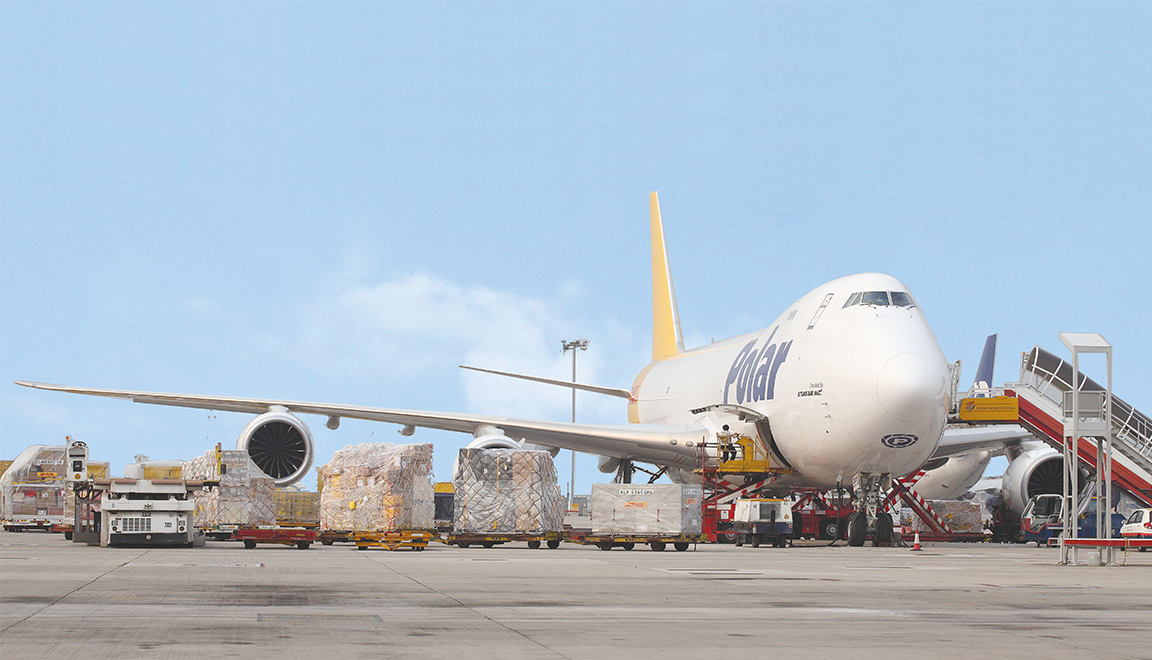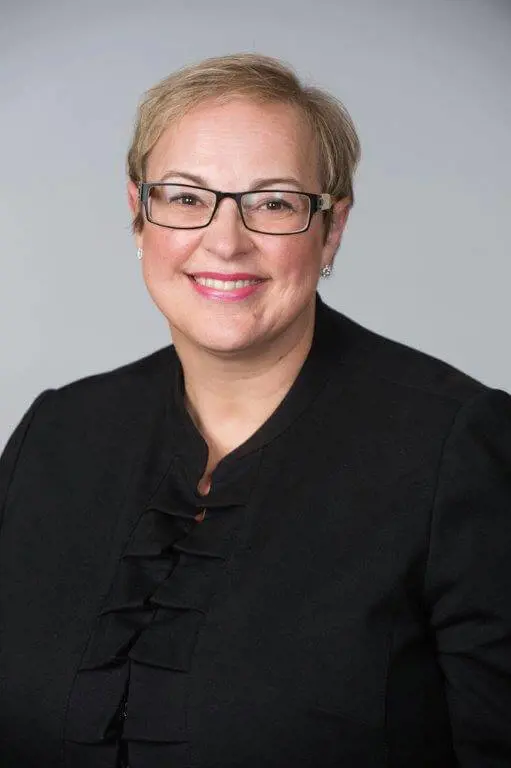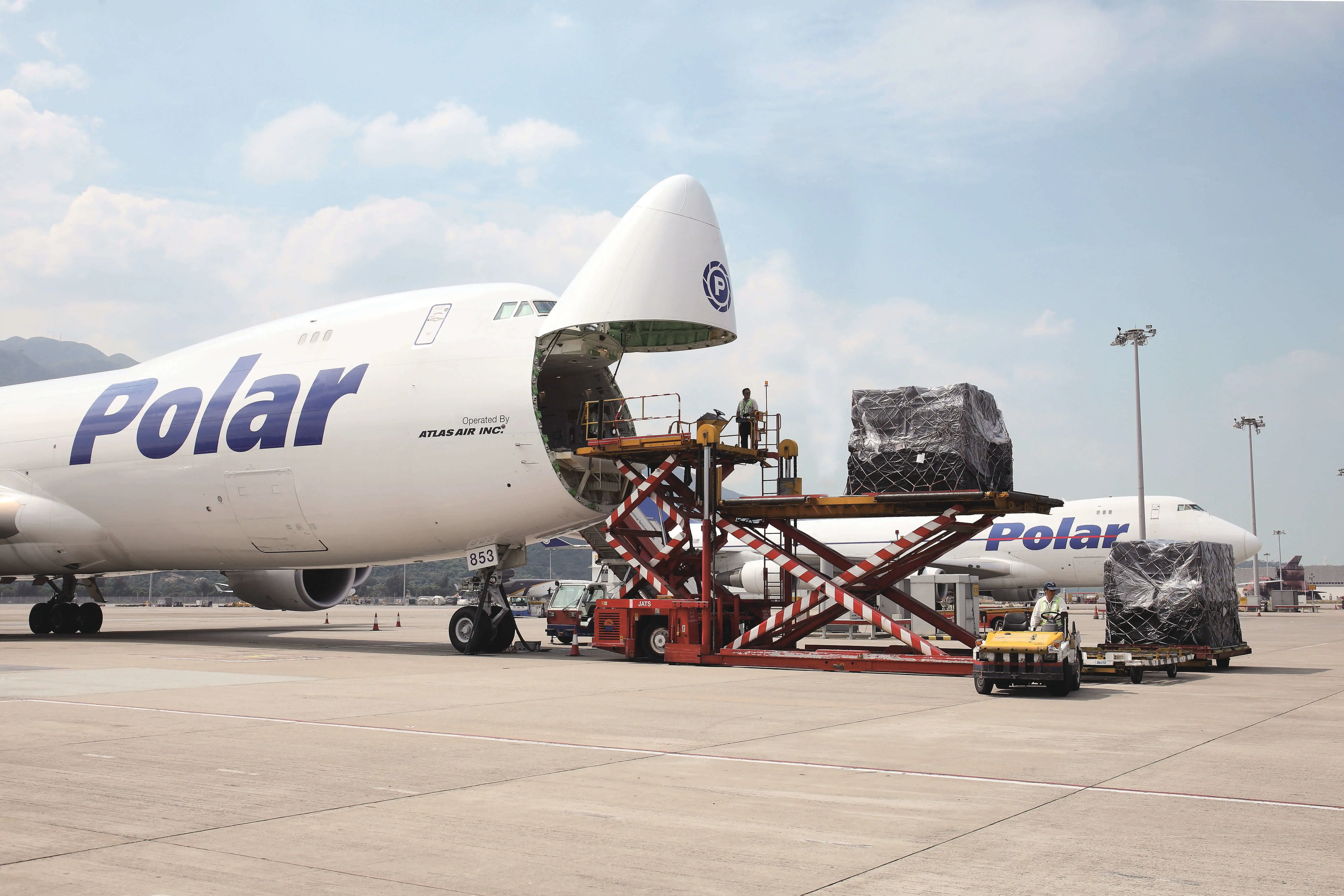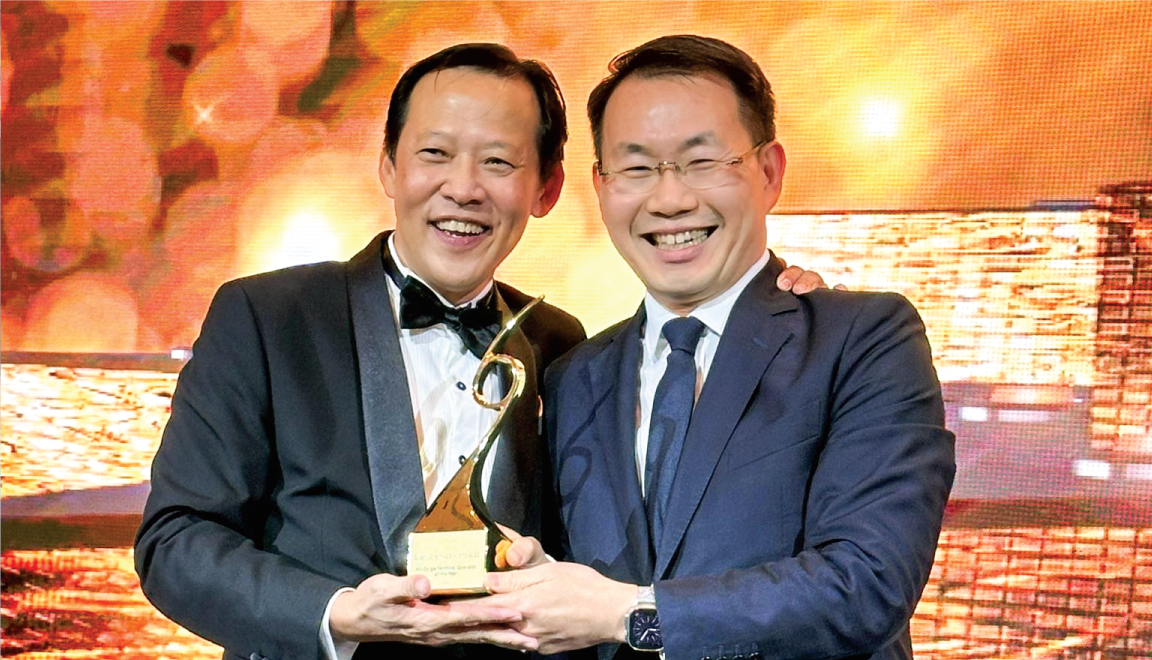I have always felt that being a woman in this industry was only an advantage, in Hong Kong and around the region, says Kersti. “My strong belief is that you should not be judged by skin colour, gender or ethnicity, but your ability and contribution.
Copyright © Hong Kong Air Cargo Industry Services Limited. All Rights Reserved.
"World Class" Hong Kong keeps Kersti keen


Polar Air Cargo is one of the world’s largest all-cargo airlines, with a fleet of thirteen B747 and two B767 aircraft. It is a major operator into Hong Kong, with at least sixteen flights of its own per week to the USA and Europe, plus fifteen B777F codeshare flights to the USA.
Polar’s Vice President, Asia Pacific is the same one it has had since 2002: a Canadian who has been working in the freighter sector since 1994. And, rather unusually in this (still) male-dominated business, it’s a woman - Kersti Krepp – who has headed up Polar’s highly important Asian operations for the past 13 years.
“I have always felt that being a woman in this industry was only an advantage, in Hong Kong and around the region, says Kersti. “My strong belief is that you should not be judged by skin colour, gender or ethnicity, but your ability and contribution.
“I am encouraged to see more women attracted to this dynamic sector, as evidenced by Polar’s Sales & Reservations team in Hong Kong - where 7 of the 12 members are women. Polar’s Sales Manager in Shenzhen is also a woman.”
Polar Air Cargo is one of the world’s largest all-cargo airlines, with a fleet of thirteen B747 and two B767 aircraft. It is a major operator into Hong Kong, with at least sixteen flights of its own per week to the USA and Europe, plus fifteen B777F codeshare flights to the USA.
How it all began…
Kersti’s Godfather is to blame for her introduction to aviation; he recommended it as the avenue to satisfy her hunger for a challenging international career. So, fresh from university, she took a post at the University of North Dakota in its Aerospace Sciences department. In 1989, one of her student tour guides went to work at Evergreen International, and told her about it. She submitted her CV and was offered a job - as Manager of Administration and Air Park, Evergreen Air Center in Arizona.
Her subsequent career at Evergreen led through Aircraft Maintenance, executive assistant to the owner, and a marketing role. Her move to Hong Kong came at 5 days’ notice, when she was charged with the task of selling Evergreen’s capacity from Hong Kong to the USA.
She quickly fell for Hong Kong; indeed, it was the subsequent threat of moving back to the USA that prompted her to quit Evergreen in favour of logistics start-up V-Logic. “I completed the Kellogg-HKUST Executive MBA in 2000, and some classmates came up with a plan to start a small logistics provider. There were indications that Evergreen wanted me to take up a role back in the US, and I was not ready to leave Asia. When my classmates approached me it felt like a perfect bridge from Evergreen to offering value to a start up company."
I completed the Kellogg-HKUST Executive MBA in 2000, and some classmates came up with a plan to start a small logistics provider.
The lure of all-cargo operations
When she arrived in Hong Kong on June 12, 1994 Evergreen operated two flights per week HKG-LCK-JFK. By the time she left, it served Hong Kong, Jakarta, Singapore and Taipei to SFO, LCK and JFK, and she had been appointed to the airline’s main board.
Kersti spent 21 months with V-Logic, but the lure of all-cargo operations never died. Her former boss at Evergreen had moved to Polar in 2000 and, in February 2002 offered her the post she still holds today. “ V-Logic was fully operational so I was able to move on to the next challenge at Polar Air Cargo. Polar had invested in the B747-400F and was transforming into what we internally called the “New Polar” – a highly reliable airportto-airport carrier with some very attractive routes and traffic rights.”
The global economy has not always been kind to all-cargo operators, and many (including Kersti’s first employer, Evergreen) did not make the cut. How does she explain Polar’s success and longevity, where others have failed? “The investment by DHL and long term block space agreement with DHL Express were important milestones for Polar. It provided the base-load customer which has enabled us to grow over the years.

Old relationships that create new opportunities
“The other important contributor is our people – many have been with us for over a decade. They have relations with our forwarding customers that are even longer. As we expand our network we can leverage current customer relationships into new city pairs.”Polar is a significant capacity provider for DHL Express, moving traffic from its Central Asia Hub in Hong Kong to its two other global hubs, in Cincinnati and Leipzig. “Most of our flights carry DHL Express shipments, says Kersti. “This explains our relentless pursuit of perfect on time performance.”
Polar has worked with Hactl since its inaugural flight into Kai Tak Airport on September 25 1994. As with all its customers, Hactl allocates Polar a dedicated Account Manager, to ensure best handling practice and that aircraft handling procedures comply with quality and safety criteria. “The Duty Manager is easy to reach in the event of ad hoc service requests or special handling needs. Hactl is always ready to listen to customer comments, holding regular meetings with us. Their Performance Enhancement Team has initiated a number of improvements such as upgrades to COSACPlus, to make it more user-friendly.”
Kersti continues: “We’re impressed by the level of resources Hactl devotes to enhancing cargo warehouse security, including upgraded X-ray machines and 24/7 CCTV surveillance.” The airline also uses Hactl Group company Hacis, and its Superlink China Direct service, to move USA import cargo into Southern China.
We are in a difficult situation where further growth cannot be satisfied by Hong Kong’s current runway capacity. In part as a response, Polar started to operate flights in Shenzhen a year ago, and we have since grown from weekly to 5 x weekly services operating SZX-NRT-CVG. We fully support the third runway, and we hope that support for cargo operations is given equal footing with passengers.
World-class Hong Kong keeps Kersti’s interest
What has kept Kersti in Hong Kong for 21 years? She cites several factors, including the people (“They are hard-working and honest”) and the density and importance of the local logistics industry. She describes Hong Kong infrastructure as “World class”, and says it’s the ideal base for her travel throughout the region. Not least, Kersti appreciates Hong Kong’s natural beauty. On the downside, she expresses frustration with sometimes poor air quality, a tight labour market and the constraints of the airport’s two-runway configuration.
“We are in a difficult situation where further growth cannot be satisfied by Hong Kong’s current runway capacity. In part as a response, Polar started to operate flights in Shenzhen a year ago, and we have since grown from weekly to 5 x weekly services operating SZX-NRT-CVG. We fully support the third runway, and we hope that support for cargo operations is given equal footing with passengers.”
Planned infrastructure projects will add to Hong Kong’s appeal, she says: “The Hong Kong-Zhuhai-Macao Bridge will benefit Hong Kong and our industry, with its more convenient and time-effective connection between the Western Pearl River Delta and HKIA. This will enhance Hong Kong’s position in the region.”
My ideal work environment is one of constant learning and challenge.
The changing world of airfreight
Kersti has seen a lot of change in 28 years in air cargo: including the transition from Kai Tak, customer expectations that are higher than ever, and increased night flights to cater to supply-chain needs. “When I came here, a twice-weekly service and twiceweekly consolidations were considered sufficient for shippers’ needs; that’s no longer the case.” Sadly, although more modern aircraft have come into service, their larger capacities and longer ranges have not helped declining yields in the industry.
Freighter operations must rank as one of the most challenging aspects of a business that is never easy; so what has kept her in such a tough business? “My ideal work environment is one of constant learning and challenge,” she explains. “I would never be happy in a predictable routine; airfreight delivers consistent inconsistency, and predictable unpredictability. There is never a boring moment.”
“It is also my great pleasure to work with very talented colleagues who really try their very best to serve the customer and the company’s needs. They tend to the relationships as well as the details.”
“So I’m still in Hong Kong after 28 years, still learning and still growing with our changing industry!”






